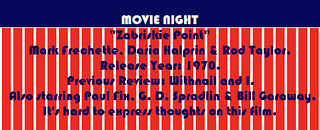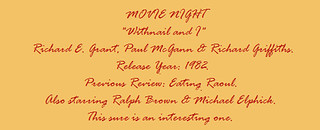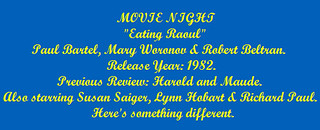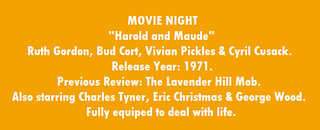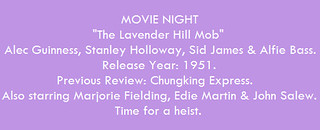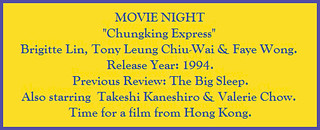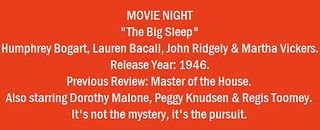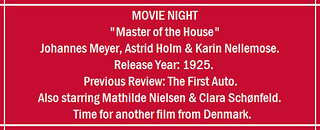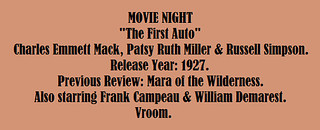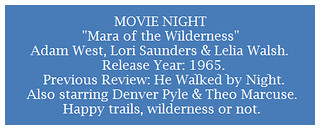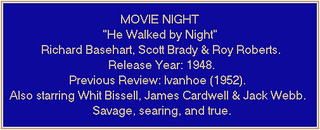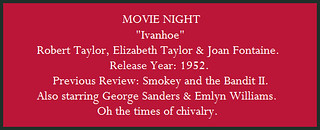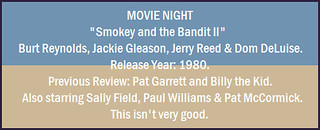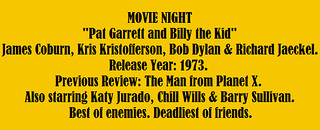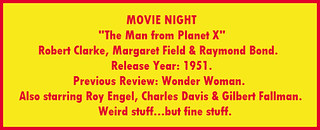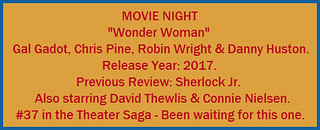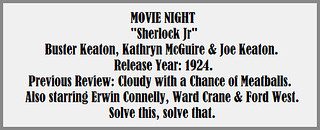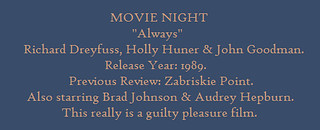

Review #958: Always.
Cast:
Richard Dreyfuss (Pete Sandich), Holly Hunter (Dorinda Durston), John Goodman (Al Yackey), Brad Johnson (Ted Baker), Audrey Hepburn (Hap), Roberts Blossom (Dave), Keith David (Powerhouse), Ed Van Nuys (Nails), and Marg Helgenberger (Rachel) Directed by Steven Spielberg (#126 - Close Encounters of the Third Kind, #168 - Raiders of the Lost Ark, #169 - Indiana Jones and the Temple of Doom, #170 - Indiana Jones and the Last Crusade, #302 - Indiana Jones and the Kingdom of the Crystal Skull, #351 - Schindler's List, #480 - Jaws, #563 - The Sugarland Express, #573 - E.T. the Extra-Terrestrial, and #642 - Jurassic Park)
Review:
It has been said that this is one of Steven Spielberg's weakest films, but it is easy to admit that with regards to his resume prior to (and after) this film's release; it is also easy to see his love for the 1943 film A Guy Named Joe and the passion that he must've had to make a remake of it. Is this a flawed movie? Yes, but it is the kind of movie that can qualify as a guilty pleasure, for better or worse. The main cast is fairly enjoyable together, having good chemistry with each other (particularly in the first half); I liked Hunter the best in part because her hard but consistently believable tone works best against Dreyfuss and his flippish nature, though Goodman is a welcome comic relief. Johnson is fairly decent in his first co-starring role in a major film, though his chemistry with Hunter isn't as entertaining as the case with Dreyfuss. Hepburn (appearing in two scenes) is graceful as ever in her final film appearance. When it comes to showing the action with the planes (through aerial photography, rear projection and models) or when the movie wants to have some laughs, that is when the film is at its best; when it comes down to saying some of the dialogue about love and death, that is when the film nearly drowns itself in sappiness and sentimentality. At 123 minutes, it does feel a bit long with all of those awkward (but not manipulative) kind of lines, but I found the film made up for some of it with its fiery climax, with Dreyfuss and Hunter handling themselves quite convincingly. It's not a bad movie, but it is obviously not on the top of any totem pole of quality for Spielberg. The best things about the movie is what it isn't, needless to say. It's a nice harmless movie that works best for some, but likely not for others.
Overall, I give it 7 out of 10 stars.

